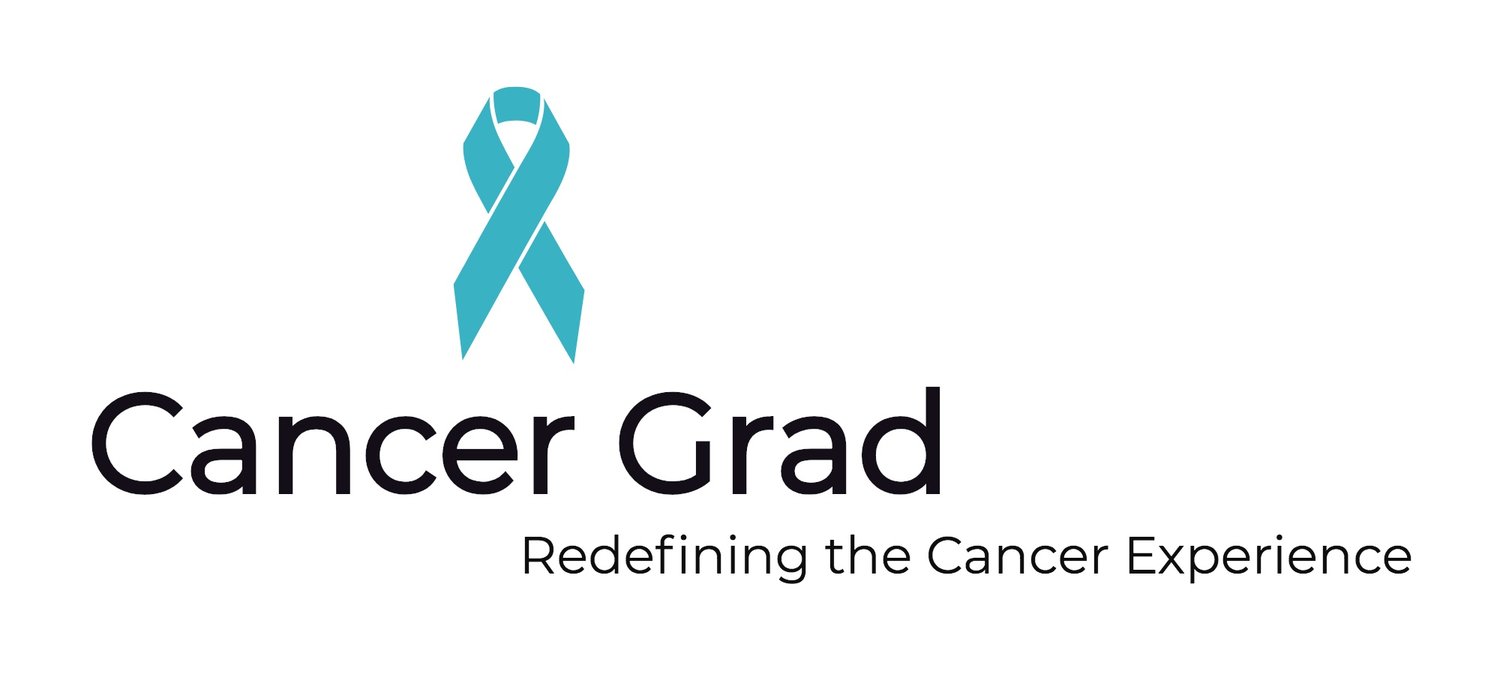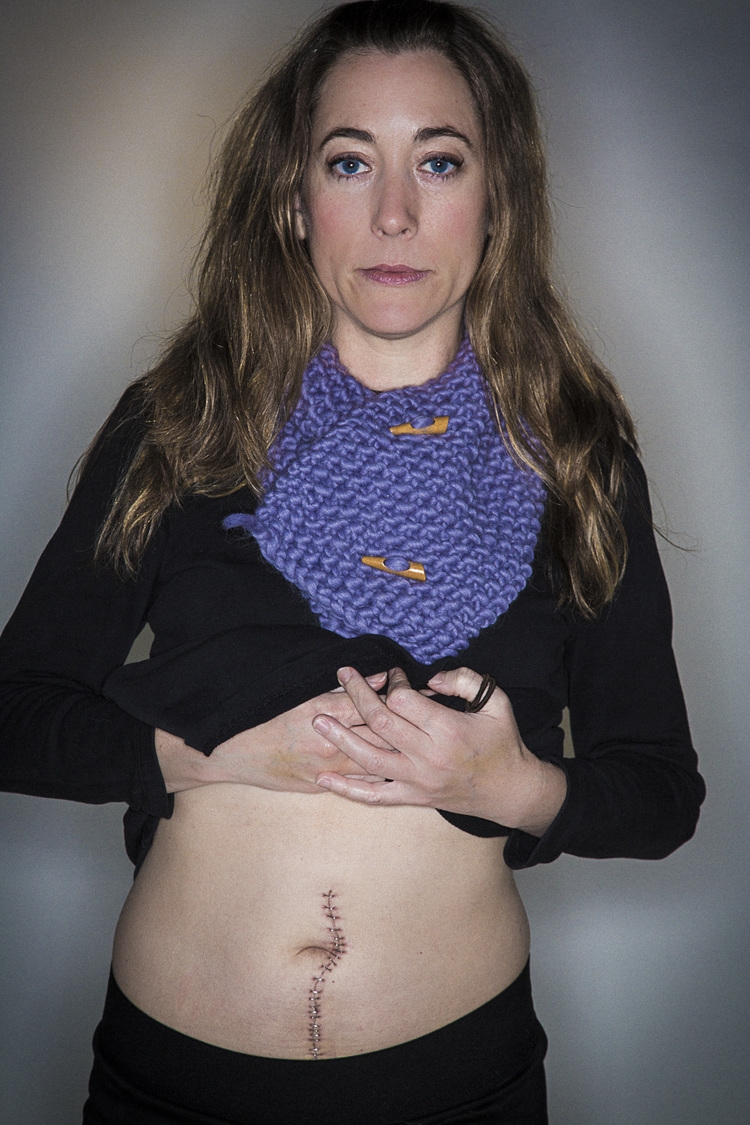Know the signs!
In autumn of 2014, I began experiencing some very subtle, very gradual changes in my body. It started with me feeling tired and run down, but I had chalked up the fatigue as related to starting a new, demanding work schedule. I noticed that some mornings, when I woke up, I was slightly nauseous. One afternoon, while sitting at my desk at work, I told my co-worker that I felt an odd twinge in my lower abdomen, and it felt “as if my spleen was enlarged”.
“Maybe you should get that checked out?”, she replied.
I brushed it off and went about my busy work schedule.
As the months passed, I noticed that I had to pee more often. I began to feel bloated all of the time. I was constipated, and started taking fiber supplements & probiotics. I ate prunes and drank lots of water, but would only find mild occasional relief in the form of “pencil poop”. As winter set in, I grew more fatigued, to the point that I would need to find a quiet place to nap during my lunch breaks at work. Over the months, on two separate occasions, I had a very sudden, very urgent need to pee. One evening, I realized that the only thing that I ate during the day was 4 tablespoons of oatmeal and a few bites of a salad and I still felt full at 10 pm. My pants later stopped fitting me around the waist.
Ovarian cancer is no fun.
Pencil poop is no fun.
Mr. Hankey is TOTALLY fun.
All of theses symptoms were gradual and happened over the course of about 5 months. At the end of December 2014 my lower abdomen started to extend out, as if there was a small balloon inside of it. By the end of January, it was much more noticeable and I was constantly uncomfortable. Sensing something was wrong, I made an appointment with my doctor.
Thankfully, my doctor listened to me, and over the course of another month and a half I was fast tracked through ultrasounds, CT Scans and referred to a gyn-oncologist. The CT scan results showed that I had a mass (actually two) parked out in my lower abdomen. They were not able to locate my ovaries in either the ultrasounds or CT Scans. During my initial consultation with my gyn-oncologist, I was informed that it was very likely that I had ovarian cancer. I was terrified.
On March 17th, 2015 I checked in to a hospital for the surgical removal of the masses. My gyn-onc had informed me that if the masses were benign, then the surgery should only take about 2 hours. If they were cancerous, then it would probably take much longer. My husband parked out in the waiting room and watched the clock tick by. As the the 2 hour mark extended into 6 hours, he tried to prepare himself for the worst.
Turns out, I had ovarian cancer. Two tumor removals (one the size of a grapefruit and the other the size of a volleyball- yes you read that correctly), a de-bulking and a full hysterectomy and oophorectomy later, I found out that I somehow skirted the odds and my cancer was staged at Stage 1c3.
I am *incredibly* fortunate. After a very long and very rough 2015, I am alive today and able to warn you about the signs and symptoms of ovarian cancer, and what to do if you suspect you or a woman you love might have it.
First, here are some numbers:
- Ovarian Cancer is the 5th leading cause of cancer related deaths in women ages 35-74.One in 75 women will develop ovarian cancer in her lifetime.
- hen a woman is diagnosed and treated in the earlier stages (Stages 1 and 2), the 5 year survival rate is over 90%
- When caught in later stages (stage 3 and 4), the survival rate drops to a dismal 28%.
- Due to the very non-specific symptoms of ovarian cancer, and lack of early detection tests, only about 15-20% of cases of ovarian cancer are found in early stages.
Now, for the signs and symptoms:
- Abdominal or lower back pain or discomfort
- Consistent bloat
- Upset stomach or heartburn
- Frequent and or/urgent need to pee
- Trouble eating or feeling full quickly
- Constipation
- Menstrual changes
- Pain during sex
- Weight loss
If you or any woman you love is experiencing these symptoms for more than 2 weeks, please encourage them to get to a doctor ASAP. Make sure you are HEARD by your doctors. *YOU ARE YOUR BEST MEDICAL ADVOCATE*. If you have had breast cancer, or have a family history of breast cancer or colon cancer, you are at a higher risk for developing ovarian cancer. Women with the BRCA genetic mutation have up to a 70% chance of developing ovarian cancer.
If you suspect that you have ovarian cancer, or if it runs in your family, your doctor can perform a blood test called the CA-125. The CA-125 is a simple blood test that measures the cancer antigen protein in your blood and is used to monitor early signs of ovarian cancer. The CA-125 is not an absolute test, but can help to support doctor's suspicions. If you are suspected to have ovarian cancer, make sure to consult with a gyn-oncologist, as they are the best prepared to monitor and know the specifics of what to look for during surgery.
Please take note, spread the awareness and share the symptoms. It could literally save a woman’s life. There are no early detection tests, and many doctors have been known to misdiagnose ovarian cancer as IBS, chronic fatigue or Epstein Barr virus. ***THE PAP WILL NOT DETECT OVARIAN CANCER***
If you have any questions, leave them in the comments below and I’ll try my best to answer them!
This was the survivor story speech Aniela gave in honor of her mother for the Gilda's Club of SoFL SNL Fundraiser. They raised the $20,000 goal in 20 minutes.






















